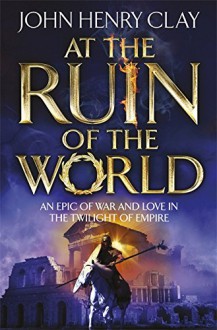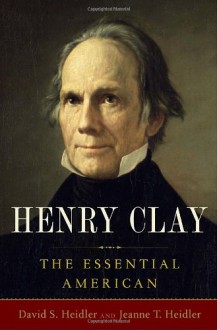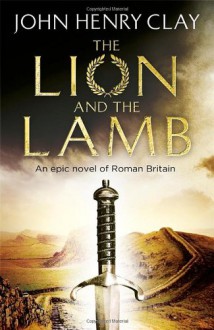
One—if not the most—of the most influential politicians in American history who never became President, though he tried several times, was praised and vilified throughout his life then slowly forgotten in the century and a half after his death. Henry Clay: The Essential American by David S. Heidler and Jeanne T. Heidler follows the dramatic political rise, the stunning setbacks, and tragic family life of the man who became Andrew Jackson’s great enemy and Abraham Lincoln’s great hero.
The Heidler’s begins moments after Clay’s death and describes the journey of his body to Lexington with the outpouring of honor along the way then turn their attention as to how Clay became so honored. Born in eastern Virginia as a scion of a long-time colonial family and fatherless early in life, Clay was fortunate to have a stepfather and several mentors who gave him opportunities which he took hold off and used to establish himself in the legal profession in Kentucky. Though idealistic early in his political career, especially on the issue of slavery in the state, Clay downplayed it sooner after to gain connections especially through marriage and accumulation of wealth in which slaves were an important facet though he would continue to advocate for his brand for emancipation throughout his life. Clay’s time in the Kentucky legislature foreshadowed the parliamentary advancements he would bring to the House and later the Senate, especially the Committee of the Whole which allowed Clay as Speaker of both the Kentucky and U.S House to join debates. A staunch Jeffersonian Democratic-Republican, Clay’s views and future policies would shift to include several Hamiltonian policies like a National Bank and tariffs but in Republican language. Upon his arrival in Washington in 1811 until his death 41 years later, Clay would be the most influential man in the city even though he never resided in the White House which would be occupied by either his allies or his avowed enemies though he would campaign for the Presidency either actively or with the am to from 1824 to 1848. Three times during his time in Washington, he championed the Union in the 1820 Missouri Compromise, the 1833 Nullification crisis, and the Compromise of 1850 his final political act as slavery threatened to ripe the country apart.
First and foremost this was a political biography which the Heidlers expertly detailed for the reader, however Clay was a family man with a particularly tragic tinge as all of his daughters predeceased their parents with Clay’s namesake dying in the Mexican-American War while another was to spend half his life in an asylum. The issue of slavery is given significant space in various parts of the book as the Heidlers put Clay’s views in context of their time and how he was as a slaveowner, but don’t excuse him for hold human beings as property. Though not stated explicitly this was also a light history of the Whig party primarily because, until slavery tore it apart, Henry Clay embodied the party even when younger members decided to jettison its ideological center for Presidential victory.
Henry Clay: The Essential American details the life of the most important politician of the Antebellum era. The husband-wife historian team of David S. and Jeanne Heidler write a very scholarly yet lively history of the man and his times that gives the reader a view of how important their subject was during his time on the national scene.

 Log in with Facebook
Log in with Facebook 









